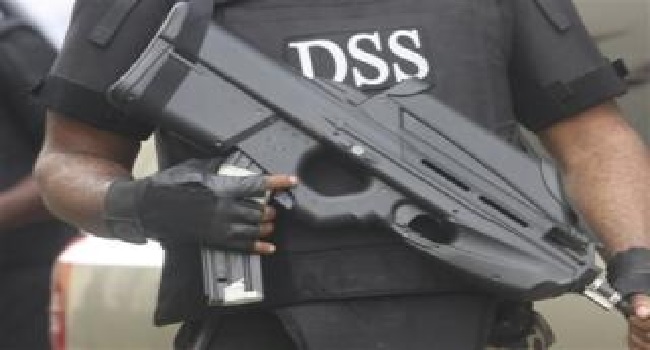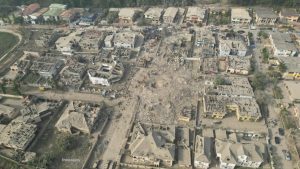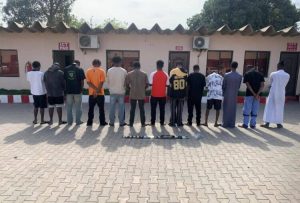COVID-19 coverage: Group calls for release of Nigerian journalist held under cybercrime act

The Committee to Protect Journalists (CPJ) has called on the Nigerian authorities to immediately release, drop all charges against a journalist goes by the name, Saint Meinpamo Onitsha, and as well reform the country’s cybercrime act to ensure it is not used to prosecute the press.
On June 4, officers with Nigeria’s State Security Services detained Mr Onitsha, founder of the privately-owned Naija Live TV news website, in Yenagoa, the capital of Bayelsa State, after he responded to a summons for questioning, his lawyers told CPJ by phone and messaging app.
Mr Onitsha told CPJ on June 3 that he received the summons, and said it involved his May 2 reporting on the alleged collapse of a COVID-19 isolation centre in Nigeria’s northern Kogi State.
He said he believed it also may be connected to a December 2019 report published by Naija Live TV alleging that a court had ordered the arrest of Bayelsa Deputy Governor Lawrence Erwhudjakpo.
After he was detained, the SSS charged Mr Onitsha with violating Nigeria’s cybercrime act and arraigned him at a federal court, according to his lawyer Benjamin Ogbara, and a copy of the charge sheet, which CPJ reviewed.
Mr Ogbara told CPJ that authorities set bail conditions that were too strict, and said that Mr Onitsha is still in detention.
The journalist is due to appear again in court on June 17 and 18, Mr Ogbara and another of Mr Onitsha’s lawyers, Wisdom Meni Adike, told CPJ.
If convicted, Mr Onitsha could face up to three years in jail and a fine of up to 7 million naira ($18,328) under the law, which CPJ reviewed.
“Saint Mienpamo Onitsha should be released immediately and permitted to continue his work. Nigeria’s Department of State Services should be protecting the public, not arresting journalists for reporting on matters of public interest,” said Angela Quintal, CPJ’s Africa program coordinator, from New York.
“How many journalists need to be prosecuted under Nigeria’s cybercrime act before it is reformed by lawmakers? One is too many, and its repeated use in this way is an outrage.”
According to the charge sheet, Mr Onitsha is accused of violating section 21 (1) (b) of the 2015 cybercrime act for his reporting on the isolation centre.
That section criminalizes “sharing messages via a computer or network system which they know to be false for the purpose of causing annoyance, inconvenience, danger, obstruction, insult, injury, criminal intimidation, enmity, hatred, ill will or needless anxiety to another person.”
CPJ has repeatedly documented the use of Nigeria’s cybercrime act to prosecute journalists for their work.
Mr Ogbara told CPJ that authorities granted bail on June 5, but required a bond of 2 million naira ($5,163), a surety from a senior civil servant, and a surety from a landowner in Bayelsa state, and said Onitsha was unable to meet those requirements.
Previously, on May 9, masked SSS officials took Mr Onitsha from his home, drove him around for several hours, and then detained him for five days while they questioned him about the May 2 COVID-19 article and the December article about Mr Erwhudjakpo, as CPJ documented at the time.
On May 12, officers released Mr Onitsha without charge, after coercing him into apologizing for the articles, he told CPJ at the time.
Mohammed Onogwu, a media aide for the Kogi state governor’s office, declined to comment on Mr Onitsha’s arrest in May when contacted at the time. When CPJ called him again on June 10, the call did not go through.
Doubra Atasi, a spokesperson for Mr Erwhudjakpo, did not respond to CPJ’s calls and text messages regarding his detention. In May, Mr Atasi told CPJ that Mr Erwhudjakpo had not filed a case against Mr Onitsha.
The spokesperson for the SSS Peter Afunaya did not respond to calls and text messages from CPJ seeking comment.
SOURCE: COMMITTEE TO PROTECT JOURNALISTS www.cpj.org







